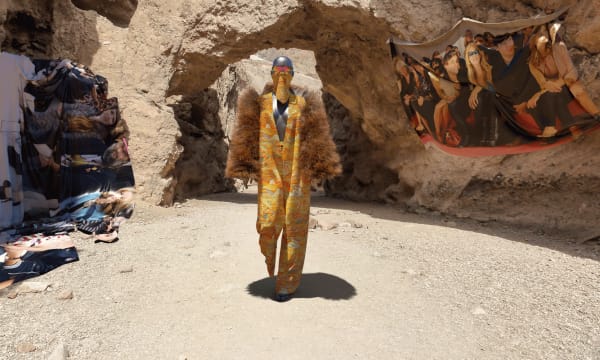When we conducted the research for our “Into the Metaverse” report in July 2021, we found that only 38% of global respondents were familiar with the term ‘metaverse.’ That number has likely changed in the last six months, but there is still a lot of confusion over what the metaverse is. Here’s how we’re defining it, and key terms you need to know.
A primer on the metaverse and key terms to know.
What is the metaverse?
At its most basic level, the metaverse is an extension of our lives enhanced by technology. Currently, it exists as a series of distinct virtual worlds and experiences—think Fortnite’s concert series, Vans World in Roblox, or Horizon Workrooms by Meta. In the future, however, the metaverse will expand into an interconnected and limitless world where our digital and physical lives fully converge.
Kerry Murphy
Founder and CEO, The Fabricant
Ready Player One has become a popular reference point when describing the metaverse, but there’s a key difference: the metaverse will not be a virtual universe separate from the physical world, but an overlay onto it. The metaverse will be a digital extension of daily life, rather than an escape from it.
Alexander Fernandez
CEO and founder, Streamline Media Group
The metaverse is in many ways the next generation of digital platforms, which have already become an indispensable part of everyday life. As venture capitalist and metaverse essayist Matthew Ball explained, the metaverse is a “successor state to the mobile internet.”
Ryan Mullins
CEO and founder, Aglet
Does the metaverse exist yet?
As Ball stated, there “will be no clean Before Metaverse and After Metaverse.” Rather, the metaverse “will slowly emerge over time as different products, services and capabilities integrate and meld together.” A fully-fledged metaverse has not yet materialized, but advances in virtual reality (VR) and augmented reality (AR) technologies are heralding its arrival. And many of the foundational, everyday habits that will tee up the metaverse already exist, including daily tech use—76% of global consumers say their everyday life and activities depend on technology, according to our research—and the proliferation of gaming platforms as social and cultural destinations.
Words to know
Interoperability The ability for virtual experiences, possessions and identities to travel unchanged across platforms.
Persistence A continuity of existence; the continuation of virtual life regardless of whether people are online or offline.
Decentralization Distribution of ownership—the idea that the metaverse will not be regulated or run by a single corporation or individual.
NFT Non-fungible tokens (NFTs) are digital certificates of authenticity that will form the basis of digital ownership.
Digital twins Physical spaces that have been cloned in the virtual world to promote familiarity and efficiency.
Liminal spaces A new generation of gathering spaces and event locales that incorporate both physical and virtual elements.
Extended reality An umbrella term encompassing augmented, virtual and mixed realities.
Web3 A decentralized, blockchain-based internet that will enable a seamless fusion of virtual and physical life.
DAOs Decentralized autonomous organizations (DAOs) are community-led digital organizations that run on blockchain technology.
Virtual teleportation A new technologically enabled form of travel or collaboration that uses multi-sensory and photorealistic renderings to make you feel as if you’re in the same room as someone who could be halfway around the (physical) world.
Main image courtesy of BMW and Nvidia, who are partnering to create a digital twin of the carmaker's factory in Regensburg, Germany
Please provide your contact information to continue.
Related Content

New trend report: Into the Metaverse

